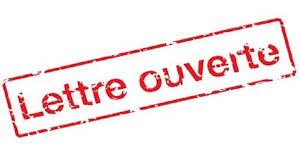–
Open letter to Madame Frédérique Vidal, Minister of Higher Education
Madam Minister,
The situation at the IEP in Grenoble and the proceedings against our colleague Klaus Kinzler demonstrate, if it were necessary, that the freedom of expression of academics, as well as their academic freedom within the framework of their teaching and of their research, freedoms of which you are the first guarantor, are in danger in our country.
In recent years, a militant current – and claiming to be such – has sought to impose, in many higher education establishments, in particular in the field of social sciences, an exclusive discourse. It is one thing to welcome new fields of study and new paradigms; it is quite another to let them acquire dominance or even institutional hegemony, even though their scientific relevance is, as you know, the subject of intense intellectual debate.
You yourself were moved by the extension in the University of what you called “Islamo-leftism” – which is one of the manifestations of these abuses – and announced a report on this subject in February of this year. It is clear that, almost a year later, this report, constantly promised and constantly postponed, has still not seen the light of day.
Likewise, we would like to draw your attention to the report of the Inspectorate General that you assigned to the Grenoble IEP, noting that “at the end of its work, there is no doubt […] that it is the accusations of Islamophobia which are the cause of the serious deterioration of the climate of the IEP “(p. 2) and” that a climate of fear had settled for several months among the students of the IEP due to this use by the U[nion] S[yndicale] accusations (serious, since it is a question of misdemeanors, even crimes such as rape) disseminated on social networks against all those who do not seem to him to share his positions ”(p. 3). However, it turns out that the person now being prosecuted is the same one who alerted to these actions and who, we remind you with seriousness, is threatened with death for this alleged “Islamophobia”: our colleague Klaus Kinzler. And these prosecutions take place against the traditions of the French university as well as the case law of the ECHR.
In this context, where freedom of expression is threatened by disciplinary and even criminal sanctions; where the pluralism of teaching and research is thwarted by intimidation maneuvers, and therefore by the growing self-censorship of our colleagues, in particular of the youngest, since their careers depend on it; where, finally, an increasing number of students are expressing their concern at what they perceive as a training and propaganda enterprise, our question is simple: what do you intend to do precisely, Madam Minister?
With our most respectful greetings,
List of first signatories
Michel Albouy, professor emeritus in management sciences, Université Greno-ble Alpes
Claudine Attias-Donfut, sociologist
Sami Biasoni, essayist, doctor of philosophy
Christophe Boutin, professor of public law, University of Caen-Normandie
Jean-François Braunstein, professor of philosophy, Paris 1 Sorbonne University
Pascal Bruckner, essayist and philosopher
Joseph Ciccolini, University professor – Hospital Practitioner
Albert Doja, professor of anthropology, University of Lille
Laurent Fedi, University of Strasbourg
Monique Gosselin-Noat, professor emeritus of literature
Yana Grinshpun, linguist, Paris 3
Philippe Gumplowicz, professor of musicology Université Evry-Paris-Saclay
Nathalie Heinich, sociologist
Emmanuelle Hénin, professor of literature, Sorbonne University
Hubert Heckmann, Lecturer in Medieval Literature, University of Rouen
Mustapha Krazem, linguist, University of Lorraine
Arnaud Lacheret, associate Professor
Anne-Marie Le Pourhiet, professor of public law at Rennes 1 University
Andrée Lerousseau, Lecturer at Lille 3 University in Philosophy
Samuel Mayol, lecturer, Paris 13
Michel Messu, honorary professor of philosophy
Frank Muller, Emeritus Professor of Modern History, Observatory of Decolonialism and Identity Ideologies
Bernard Paqueteau, Professor of Political Sciences
Rémi Pellet, professor at the Faculty of Law, University of Paris and at Sciences Po Paris
Gérard Rabinovitch, philosopher
Pascal Perrineau, professor emeritus of universities at Sciences Po
François Rastier, linguist, Emeritus Director of Research at CNRS
Philippe Raynaud, philosopher, Paris II
François Roudaut, professor (Montpellier III University)
Xavier-Laurent Salvador, linguist, Sorbonne Paris University
Perrine Simon Nahum, historian and philosopher
Jean Paul Sermain, Emeritus Professor of Literature
Jean Szlamowicz, linguist
Pierre-Henri Tavoillot, philosopher, Sorbonne-University
Pierre-André Taguieff, research director at CNRS
Thibault Tellier, university professor, Sciences Po Rennes
Dominique Triaire, emeritus professor of French literature, University of Montpellier
Pierre Vermeren, Professor of History, University of Paris I
Christophe de Voogd, historien
Nicolas Weill-Parot, director of studies at EPHE
–


